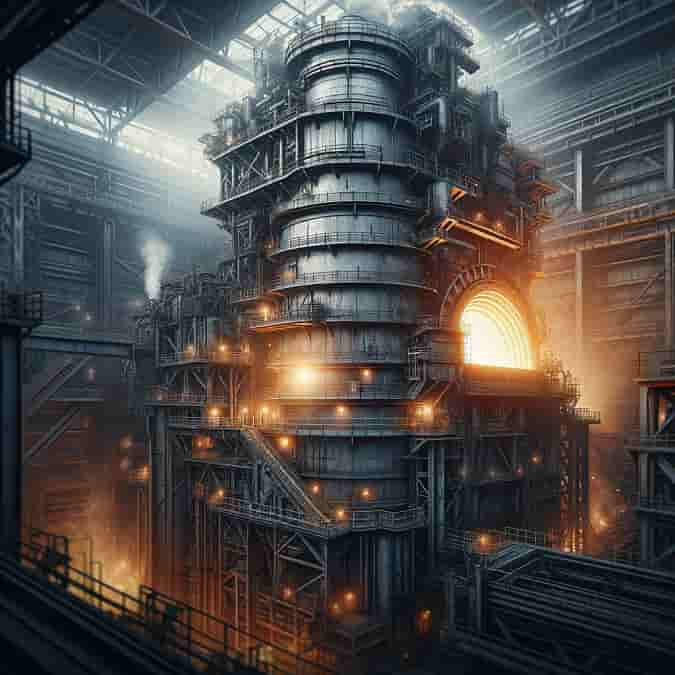In a significant shift that could mark the end of an era for the UK’s steel industry, British Steel has announced plans to cease operations of its blast furnaces at the Scunthorpe plant. This move, driven by the company’s decarbonisation strategy, has raised alarm over the potential loss of 2,000 jobs, as reported by unions.
The company, under the ownership of China’s Jingye Group, has unveiled intentions to replace the traditional blast furnaces with two modern, more environmentally friendly electric arc furnaces (EAFs), one in Scunthorpe and the other in Teesside. This transition is not without precedent; Teesside had previously witnessed the closure of its primary steelworks in Redcar in 2015, which resulted in the loss and redundancy of 1,700 jobs.
Jingye Group asserts that this strategic overhaul is crucial for revitalising the competitiveness of UK-produced steel and establishing a sustainable trajectory for the enterprise. However, the proposal hinges on securing a government grant reportedly valued at £300 million.
The transition towards EAFs is a nod to the growing emphasis on sustainable manufacturing practices, as these furnaces can operate on zero-carbon electricity, potentially slashing British Steel’s carbon dioxide emissions by an impressive 75%. Xijun Cao, the Chief Executive of British Steel, expressed the company’s commitment to producing domestic, low-carbon steel, acknowledging the impracticality of achieving net-zero emissions with the existing blast furnace operations.
The proposed furnaces are anticipated to be functional by late 2025. Nonetheless, this development poses significant concerns for the UK’s industrial-grade steel manufacturing capacity, especially considering similar decarbonisation and cost-reduction plans by Tata Steel, which threaten the closure of two blast furnaces at Port Talbot in South Wales, jeopardising up to 3,000 jobs.
Unions stressed the necessity of a comprehensive consultation to explore all viable options for safeguarding the future of steel production. They highlighted the strategic importance of blast furnaces in the transition towards green steelmaking and warned against the UK’s increasing vulnerability to international markets if the plans materialise.
This unfolding scenario paints a complex picture of an industry at the crossroads of economic viability and environmental responsibility. As British Steel navigates this transition, the fate of thousands of workers face redundancy and the UK’s steel sovereignty hangs in the balance.
The Workers Union Says
“The potential closure of blast furnaces at British Steel’s Scunthorpe plant is a matter of grave concern. It underscores the urgent need for a balanced approach that safeguards jobs while steering the industry towards a greener future. It is paramount that all stakeholders, including the unions, engage in a dialogue to explore sustainable solutions that protect the livelihoods of workers and the integrity of the UK’s steel manufacturing capabilities.”




